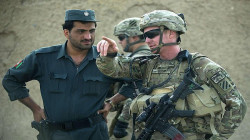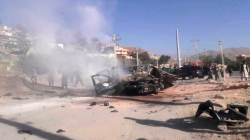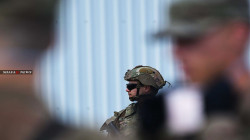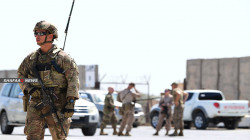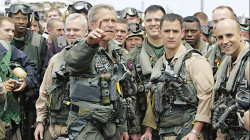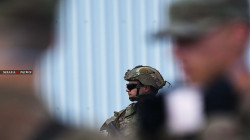How US military pullback in Iraq could benefit Iran
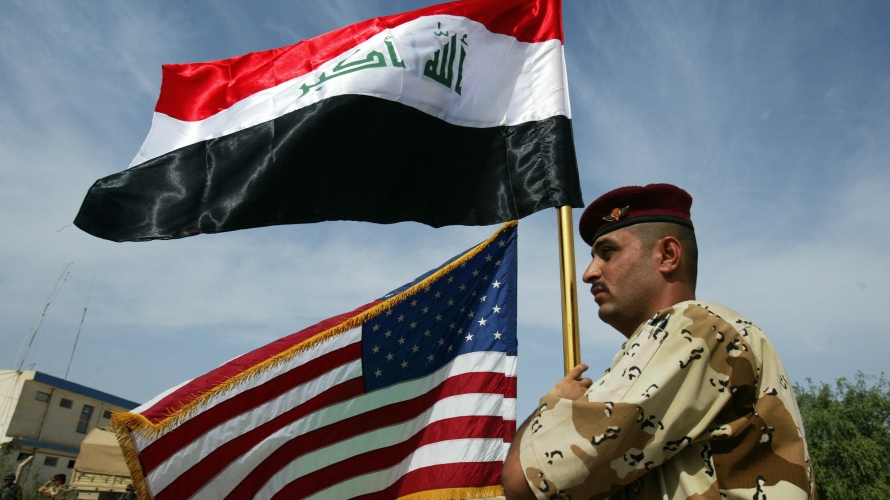
Shafaq News/ First Afghanistan, now Iraq. As Iraq's prime minister visits the White House for talks with President Joe Biden, an announcement has been made that all remaining US combat troops will be out of Iraq by the end of this year as part of an ongoing "US-Iraq Strategic Dialogue".
This prompts two key questions: what difference will this make on the ground, and does this open the door for a return of Islamic State (IS), the group that terrorised much of the Middle East and attracted recruits from as far afield as London, Trinidad and Australia?
Eighteen years on from the US-led invasion of Iraq, America only has about 2,500 regular troops left in Iraq, plus a small and undisclosed number of Special Operations forces fighting IS.
Concentrated in just three bases, they are a tiny fraction of the 160,000-strong force that occupied Iraq post-invasion - but they are still subject to rocket and drone attacks from suspected Iranian-backed militias.
The US military's job is training and assisting the Iraqi security forces who are still battling a sporadic but deadly insurgency by IS jihadists.
But the US military's presence in the country is controversial.
Iranian-backed politicians and militias want them out, especially after the US assassinated the head of Iran's Revolutionary Guards Quds Force, Maj Gen Qasem Soleimani, and a top Iraqi Shia Muslim militia commander at Baghdad airport in January 2020.
Even non-aligned Iraqis would like to see their country rid of foreign forces; the notion of foreign occupation is an emotive one.
This suits some in Washington just fine, although not at the cost of "handing over Iraq to Iran".
The US has long been trying to extricate itself from what President Biden calls its "forever wars" in the Middle East. Hence the accelerated withdrawal of US forces from Afghanistan, as the US and its allies turn their attention increasingly towards the Asia-Pacific region and the South China Sea.
Islamic State 2.0?
Lurking in the background here is the spectre of an IS revival and the possibility of history repeating itself.
In 2011, President Barack Obama announced that US troops were pulling out of Iraq.
Although a small number have remained since, that drawdown, combined with a toxic Iraqi political mix and a burgeoning civil war across the border in Syria, created the perfect space for IS to eventually seize Mosul, the second city, and then control territory the size of a European country.
Could this now happen again? Could a reconstituted IS 2.0 once again sweep aside a demoralised Iraqi army deprived of US combat support?
It's a lot less likely, for several reasons.
IS was able to capitalise back then on the massive discontent felt by Iraq's Sunni Muslims towards the highly partisan Shia government of Prime Minister Nuri Al-Maliki. He ran the country from 2006-2014 and systematically disenfranchised the Sunnis, pushing many into the waiting arms of IS.
Today's political equation, while far from perfect, is more acceptable to Iraq's competing ethnic groups.
Since the defeat of IS, the US and Britain have also spent a lot of time and effort in training up Iraq's counter-insurgency forces and that training is set to continue, with Nato backing.
Thirdly, IS' strategic leadership, or what's left of it, appears to be more focussed on exploiting the ungoverned spaces in Africa and Afghanistan than battling well-armed security forces in its Arab heartland.
"Attacks by IS insurgents appear to be containable by Iraqi government forces," says Brig Ben Barry, a former British Army officer and now defence analyst at the think-tank International Institute for Strategic Studies.
"Although," he adds, "without a political settlement with Iraqi Sunnis the root causes of the insurgency will remain."
IS was able to conduct a successful lightning campaign across the region in the summer of 2014 partly because the West had taken its eye off the ball in Iraq.
It then took an 80-nation coalition five long years and billions of dollars to defeat it and no-one wants to go through all that again.
So despite the US drawdown, which may still see small numbers of American troops remaining, the West will be watching to see if IS or any other jihadist groups look like using Iraq as a springboard to carry out transnational attacks, especially in the West.
"Should the US detect that IS in Iraq were preparing an attack on US interests outside Iraq, Washington would probably unilaterally attack," says Mr Barry. And with sizable resources nearby and offshore in the Gulf, the Pentagon certainly has the means to do so.
Iran's long game
The bigger, long-term picture here is one that favours Iran.
Ever since Iran's Islamic Revolution in 1979 it has been trying to evict US forces from its neighbourhood and become the premier power in the region.
It has had little success in the Arab Gulf states where mistrust of Tehran runs deep and where the US military has facilities in all six countries, including the headquarters of the US Navy's powerful 5th Fleet in Bahrain.
But the US-led toppling of Saddam Hussein's regime in Iraq in 2003 removed the most effective obstacle to Iranian expansion, and Tehran has not passed up on the opportunity since then. It has successfully inserted its Shia militias into the fabric of Iraq's security establishment, and its allies have a powerful voice in parliament.
Syria's civil war has opened the door for a major Iranian military presence there, while next door in Lebanon Iran's ally Hezbollah has become the most potent force in the country.
Iran is playing the long game. Its leaders hope that if it keeps up the pressure, both overt and covert, it will eventually make the Middle East a region not worth America's effort to stay engaged in, militarily.
Hence the frequent rocket attacks on US bases and Iran's support for civil protest calling for US troops to leave.
An agreement that sees the end of US combat operations in Iraq will be seen by many in Tehran as a step in the right direction.
Source: BBC
